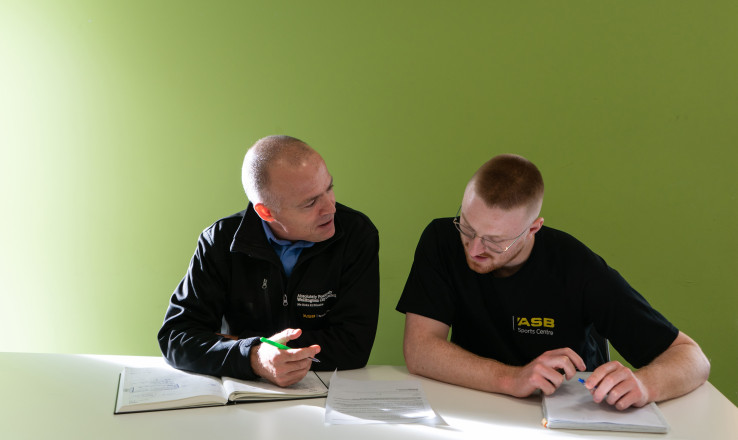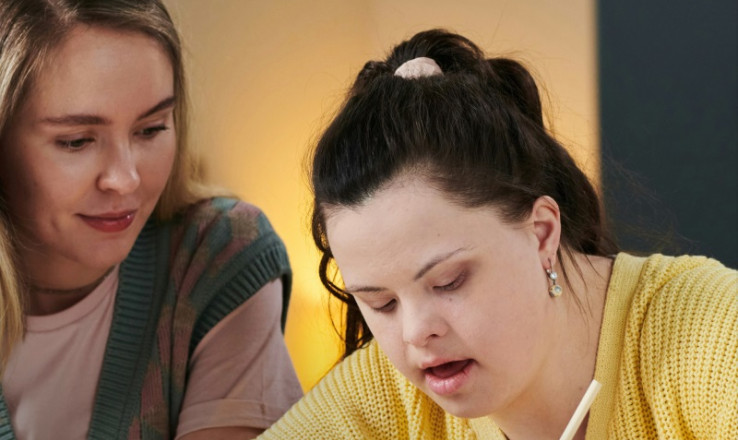- Learner
The learner is the person being assessed. They're responsible for providing evidence of competency to the assessor or evidence verifier. They do this by completing written and/or online tasks, or by demonstrating knowledge and skills while in their role (on-the-job). - YOU - the evidence verifier
The core function of the evidence verifier is to observe and record evidence. You are the eyes and ears of the assessor.
The best people to do this are those who work closely with the learner on a day-to-day basis, giving them the opportunity to observe and record naturally occurring evidence over a period of time. Often a supervisor, trainer or manager is an effective verifier.
Evidence verifiers

Evidence Verifiers (EVs) play a crucial role in the assessment process, acting as the eyes and ears of our assessors in the workplace. Their primary responsibility is to observe and record naturally occurring evidence of an ākonga’s skills and competencies. By doing so, they provide valuable support in helping learners achieve their national qualifications.
What makes a great evidence verifier?
Our evidence verifiers are those who work closely with ākonga daily in a supervisory role, giving them the chance to observe real, on-the-job learning over time. To be successful in this role, you should have:
-
Strong communication skills
The ability to build positive relationships with ākonga and assessors
-
Subject matter expertise
Ideally, you are qualified in the area you are verifying
-
Industry experience
A minimum of 3 years for Level 3 qualifications (5+ years preferred for Level 4 and above)
-
Commitment to training
Completion of the Evidence Verifier course, reading the Evidence Handbook, and participating in additional training as needed
-
Professional separation
EVs must not verify close friends or family; they should be in a supervisory role such as a team leader or manager
-
Workplace advocacy
Support from your employer, assessor, and Te Mahi Ako is essential for you to carry out your role effectively
-
Ongoing collaboration
Regular debriefs with the assessor you’re verifying for to ensure accuracy and consistency.
Why become an evidence verifier?
Becoming an EV is a rewarding opportunity to contribute to the professional growth of your team. You'll play an active role in developing future talent, ensuring high standards, and celebrating the success of ākonga. However, to be effective, it's essential that your workplace supports your role by allowing dedicated time for verification duties and ensuring you have the right skills and experience to assess the qualification.
Click here to learn more about our evidence verifier course.
Becoming a prepared evidence verifier
As an evidence verifier, you play an essential role in supporting learners on their journey to success. Taking the time to prepare will set you up for success and ensure you can confidently carry out your responsibilities.
Top tips for effective evidence verification
By following these steps, you'll be well-prepared to support your learners effectively. Let's set you up for success.
-

Meet with the assessor
Face-to-face or online
Gain clarity on their expectations and your role in the assessment process
Understand what evidence you'll be verifying, observing, or attesting to.
-

Familiarise yourself with assessment resources
Review the assessment forms, tasks, and documentation you'll need to complete
If you don't have copies, ask the assessor for them in advance.
-

Understand the verification environment
Discuss the conditions in which verification will take place
Identify any special assessment conditions or learner-specific considerations
If verifying multiple learners, have a separate discussion for each to understand their unique requirements.
-

Clarify timelines and expectations
Confirm expected timeframes for completing verification and submitting evidence
Ensure both you and the assessor are aligned on the process.
-

Meet with the learner
Set expectations on when, where, and how the verification will occur
Ensure they feel comfortable with the process and address any questions
Reiterate that your role is to verify evidence, while the assessor makes the final judgement.
Please remember
The assessor manages the assessment process for both you and the learner. If you have any uncertainties, don't hesitate to check back with them for guidance.
Key difference: Assessor vs. Evidence verifier
- Assessors
Te Mahi Ako assessors are responsible for managing the assessment process and making the final judgement on a learner's competency.
An assessor is trained and assessed by Te Mahi Ako in the role of assessment against unit standards. They are supported by, and regularly complete moderation activities with Te Mahi Ako.